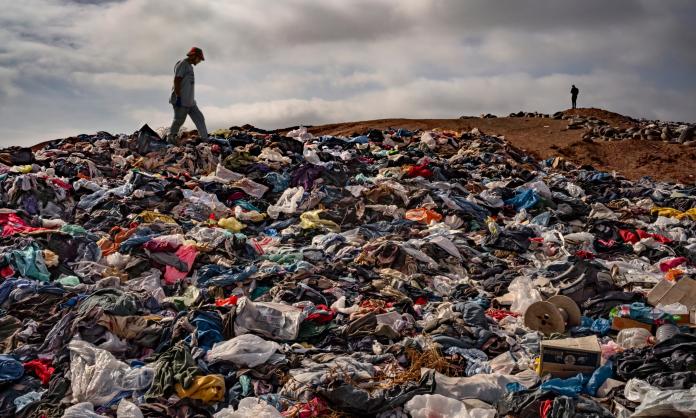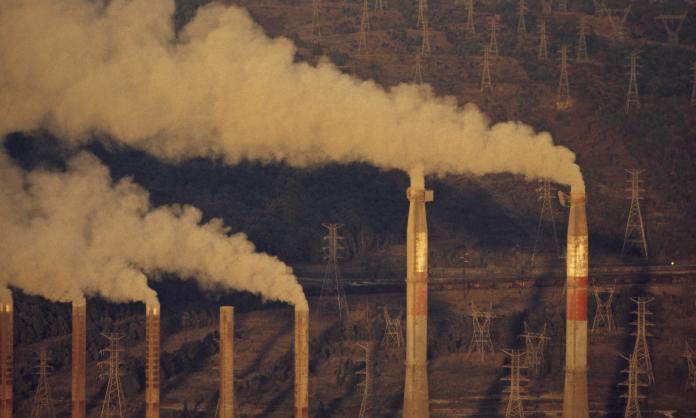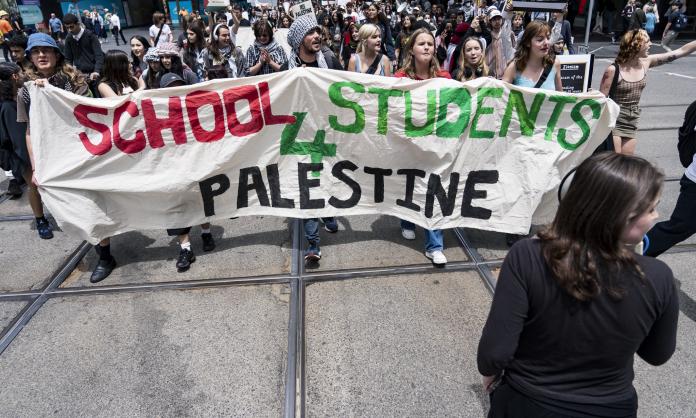Those of us who arrived early at Queensland state parliament to participate in the “Day of Rebellion” for the climate on 6 August were treated to a beautiful, crisp and sunny Brisbane morning. Our purpose was to draw attention to the global climate crisis and its destructive impact on humans, fauna and the environment through mass civil disobedience.
As the 7.30am start time approached, numbers swelled to about 350. Colourful outfits, banners and flags were dotted throughout the crowd, and we were soon chanting at the top of our lungs. There were high school students, university students, young workers and plenty of older folk.
After a few speeches we marched off chanting. “Strike, occupy, shut it down, tear the system to the ground” reverberated through the city. When we arrived at premier Annastacia Palaszczuk’s office, we sat down and peacefully occupied the road, all the while singing, chanting and listening to speeches.
The Palaszczuk government has so far ignored the mass mobilisations, road occupations and other actions against climate change and the Adani coal mine, clearly hoping opponents of the project would go away or give up. This time was different.
Soon after we occupied the road, cops moved in and made arrests. They were hoping to intimidate us, but we continued chanting and singing to show we would not be deterred from our peaceful protest.
During the arrests they cleared us off the road and forced us into a nearby plaza. Here a range of groups had set up marquees and platforms for speeches. There was an open mic, music, dancing, workshops and discussions. This was our protest base until the early afternoon. It was a lively, festival-like atmosphere and our numbers continued to grow as buses brought people from as far afield as Lismore, Byron Bay and the Gold and Sunshine Coasts.
With larger numbers we tried to re-occupy the road, but again the police cracked down and made arrests. They pushed us on to the foot path, but we continued to chant and give speeches for more than an hour.
Elsewhere in the city, other groups of protesters peacefully occupied different city intersections. They were treated in the same heavy-handed way by the Labor government’s police. The media reported police arrested 72 protesters, the largest number of people arrested at a demonstration in Queensland since 1985.
In that year, the conservative Bjelke-Petersen government was involved in a dispute with workers at the South East Queensland Electricity Board after the government backed the electricity board’s sacking of more than 1,000 linesman. Notorious for outlawing and repressing dissent, Bjelke-Petersen’s police arrested 96 people at the protests to support the sacked and striking electricity workers.
With future acts of civil disobedience around the climate crisis promised, the Palaszczuk government looks set on rivalling the hated Joh for thuggery and repression. But if the Day of Rebellion is anything to go by, climate activists won’t be easily intimidated. More defiance like this is needed to inspire others to take up the fight for the planet and humanity’s future and to push aside governments that stand in our way.









